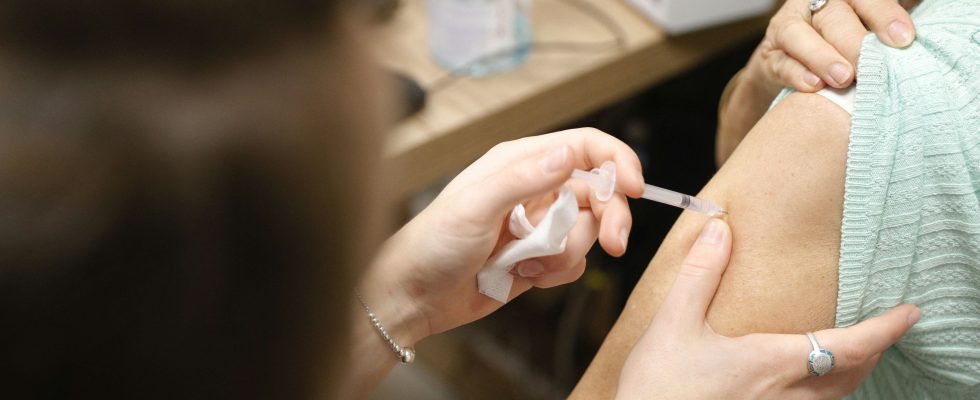It had been forgotten, it is experiencing a marked rebound, especially in Europe. Whooping cough, a bacteria that causes potentially serious respiratory infections, causes outbreaks in which health authorities and scientists are calling for vigilance and vaccination. L’Express takes stock.
What is whooping cough?
It is a bacteria, Bordetella pertussis, which causes a long-lasting and highly contagious respiratory infection. Major symptom of the disease: frequent and prolonged coughing fits. Transmission, airborne, occurs very easily by droplets, mainly within the family or in communities. One affected person infects around fifteen others. Incubation lasts on average 9 to 10 days.
The disease can be serious for infants: they may present with malignant whooping cough with respiratory distress and deterioration of one or more organs. Vulnerable people (chronic respiratory patients, immunocompromised people, pregnant women) are also at greater risk. Deaths are rare, but can occur especially in very young, unvaccinated infants.
What rebound?
Before the Covid pandemic, the bacteria caused epidemic peaks approximately every three to five years. Whooping cough has made a comeback since the end of 2023 in several countries, in Europe and across the Atlantic. Peaks can last for several months. On the European continent, more than 32,000 cases of whooping cough were recorded in thirty countries in the first three months of 2024. This is already much more than in all of 2023 (more than 25,000), according to the European Center for Prevention and of Disease Control (ECDC).
Significant epidemics have been reported in Croatia, Denmark or the United Kingdom and significant increases in cases in Belgium, Spain or Germany. In France, more than 5,800 cases were diagnosed in the first five months of 2024, compared to 495 cases in all of 2023, according to the national reference center (CNR) for whooping cough, at the Pasteur Institute.
“A fairly explosive rebound”, declared to AFP the director of the CNR, Sylvain Brisse, who points to “a scale not seen in France for at least 20 years” and “a still ascending phase of the epidemic”. “A high level of traffic would not be surprising at the time of the Olympic Games.”
What explanations?
As with other germs, scientists see this as a consequence of the cessation of barrier measures against the Covid pandemic. “We expected an upsurge in whooping cough, a cyclical disease, knowing that the last peak dated from 2018 in France. The Covid period delayed the recovery, now it is really coming back in force,” observed the specialist from the Institute Pastor.
While a rebound could be expected in 2021-2022, health measures linked to the Covid-19 pandemic have probably reduced transmission. The current increase is also potentially linked, according to this expert, to a possible drop in collective immunity since the last episodes of infections.
Other scientists also point to a lower level of vaccination against whooping cough in certain population categories during the period of the Covid pandemic.
What about vaccination?
The best protection is vaccination. The populations most affected are infants too young to be vaccinated (under 2 months) and adolescents and adults who have lost the protection conferred by the vaccine, often due to lack of boosters, or illness. Although the number of cases of whooping cough has decreased significantly since the introduction of the vaccine, vaccination, like the disease, does not provide lifelong protection against infection.
Vaccination of pregnant women is particularly crucial to protect future babies, specialists insist. As the vaccine does not fully protect against transmission, it is possible to carry the bacteria, without symptoms, and transmit the disease. Hence the vigilance necessary if you are around toddlers.
What treatment?
Once whooping cough is diagnosed, sometimes via a PCR test, treatment “aims to eliminate the bacteria and consists of administering antibiotics as early as possible,” recalls the World Health Organization. These are mainly macrolides. This is to quickly reduce contagiousness and allow the patient to return to the community after a few days of treatment.
Hospitalization is strongly recommended for children aged 0 to 3 months, particularly for cardio-respiratory monitoring. Although it remains rare, antibiotic resistance should be monitored. “We are starting to have strains resistant to macrolides, which can complicate patient care, with sometimes serious consequences for newborns,” according to expert Sylvain Brisse.
